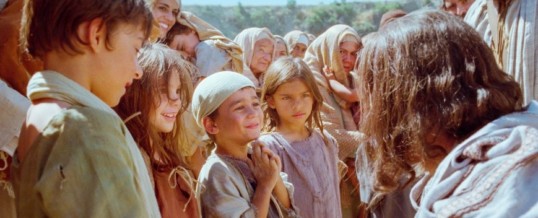
There are two Old Testament prophets of the O.T. who had particularly keen and powerful visions of a Messiah who was to come. One is the Prophet Isaiah that we hear a lot about during Advent. He lived about 700 years before the birth of Jesus. He speaks about what seems to be impossible scenarios like a lion and lamb lying down together (lions eat lambs the last time I checked); a baby putting his hand in a snake’s den and the snake not harming it (not in my world); and a child will lead them (children do well enough to follow never mind lead). This is a vision of a new world. Whose vision is it? God’s vision. Why? Because Isaiah is a prophet, and prophets do not tell you what they think; they tell you what God thinks.
The other O.T. prophet who predicts the coming of the Messiah, and what life will be like under this Messiah, is Zechariah. He lived some 600 years before the birth of Christ. He speaks in today’s first reading about the Jewish people being led back home after being held captive in Babylon for 50 years. He envisions a king leading them back home who is not riding victoriously on a war horse as you would expect. This prediction is as bizarre as Isaiah’s. Zechariah sees a king riding a beast of burden, a donkey (doesn’t that make you think of Jesus, our king, riding into Jerusalem on a donkey on that first Palm Sunday?). In Zechariah’s vision there will be no chariots from Ephraim (north) and no war horses from Jerusalem (south). Weapons of war will be no more, because this king, riding on a donkey, will command peace instead. This is a vision of a new world. Whose vision is it? God’s. Why? Because Zechariah is a prophet and prophets don’t tell you what they think; they tell you what God thinks.
Zechariah says something else to the people who are returning home after 50 years of slavery in Babylon. He says, “when you return, the first thing you should do is rebuild the Temple.” He’s not telling them to rebuild their economy and he’s certainly not telling them to spend their time and energy in rebuilding weapons of war. He’s telling them to rebuild their lives beginning with God. Faith is the cornerstone in any rebuilding. What will we do once scientists have solved the problem of COVID-19? Will we simply go back to our old way of life as if this time was just an inconvenience to be gotten over with as quickly as possible? Is getting the economy going our only priority? Or, will we see it as Zechariah saw those 50 years of slavery, as an opportunity to draw closer to God?
Zechariah wasn’t naïve about the struggles of people being enslaved for 50 years. He had one eye on peoples’ suffering but the other eye on God who would lead people through their suffering to better days ahead.
Jesus, in the gospel, is also not naïve to peoples’ suffering. Never once does he promise us a life without weariness or heavy burdens. What he promises instead is that if we yoke (tie) our weariness and burdens to him, he will do the heavy lifting and we, in turn, will find rest. What we can not do on our own, we will be able to do with him. Jesus, like the prophets of old, doesn’t tell us his thoughts but God’s thoughts. Jesus, like the prophets of old, felt the pain of rejection, loneliness, peoples’ indifference and violence. In short, he felt weariness and the burden of bringing God’s message to a world that largely didn’t want to hear it. Much of Jesus’ teachings were met with deaf ears or violence.
In Matthew’s gospel, in the verses just before we have today’s reading about heavy burdens and yokes and ultimately rest, we have Jesus being run out of three different town. But Jesus keeps on going because he is speaking God’s Word, and God’s Word, in time, will convert hearts. He believes that when one door closes another one has already opened. So, instead of becoming and remaining bitter because of rejection, Jesus sees everything as a challenge and as an opportunity.
This is where Jesus’ reference to children comes into play. Jesus says, “Father, I thank you because you have hidden these things from the wise and the intelligent and have revealed them to infants.” What is it about children that Jesus finds so good? Jesus would agree with the prophet Isaiah who said 700 years prior that “a child will lead them.” I used to think, until recently, that Jesus appreciated the innocence of children and was inviting us to lives of simplicity and innocence as well. There may be some truth in that, but I think Jesus is pointing us to a deeper truth every time he places a child in the middle of his disciples.
Fr. Phil
JUL
2020

About the Author: